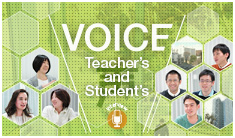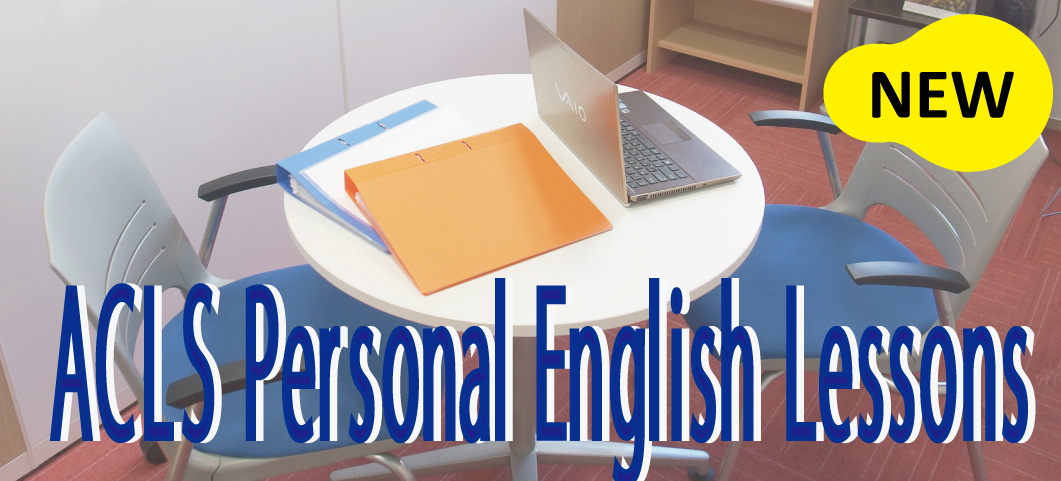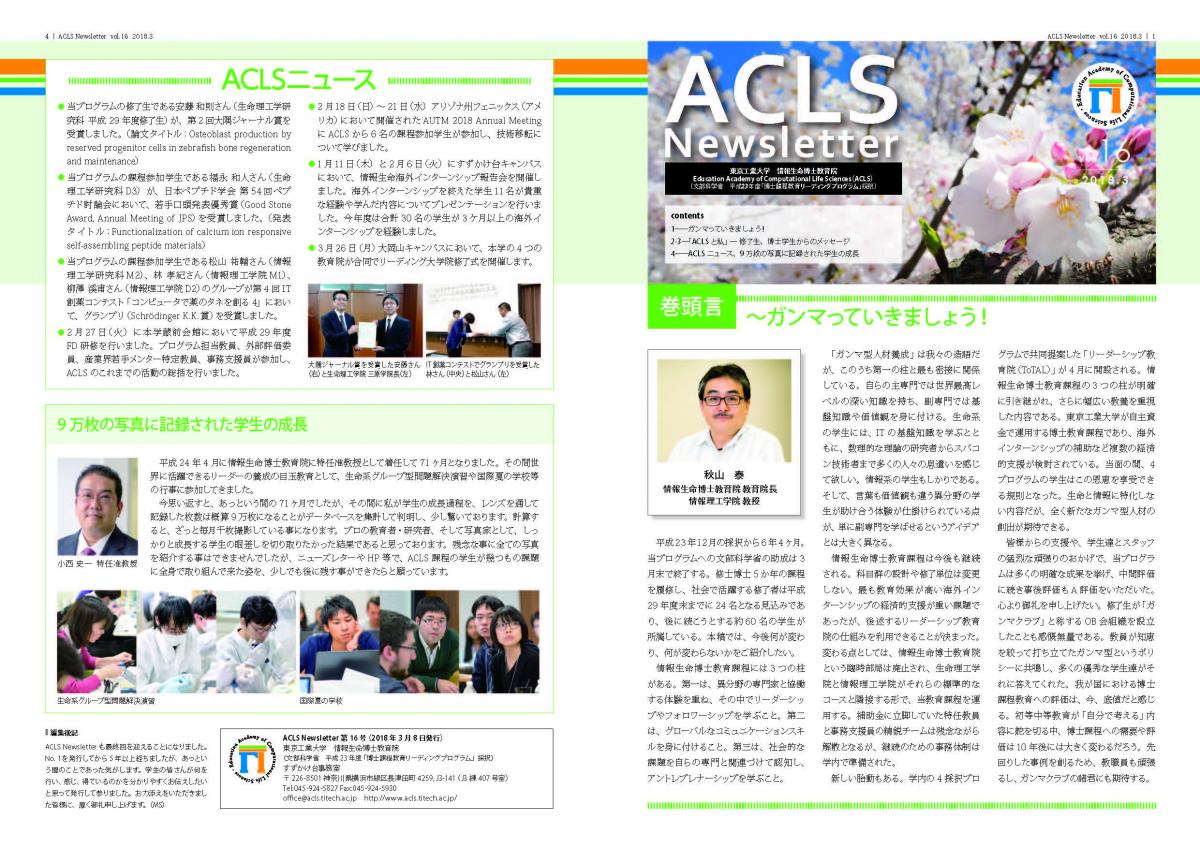- Home
- Teacher's and Student's voice
- Masayuki Yamamura
Masayuki Yamamura


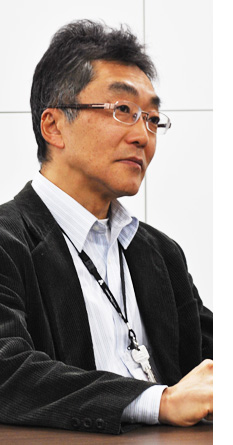 Yamamura: Since 1989, I have been engaged in research and teaching activities here at Tokyo Institute of Technology as a lecturer. At that time I was researching artificial intelligence, and evolutionary computation was my main theme. We produced research with applications to various situations, such as stock investment portfolios, nurses work rosters, and so on.
Yamamura: Since 1989, I have been engaged in research and teaching activities here at Tokyo Institute of Technology as a lecturer. At that time I was researching artificial intelligence, and evolutionary computation was my main theme. We produced research with applications to various situations, such as stock investment portfolios, nurses work rosters, and so on.
When my research into what could be termed “fifth-generation”, artificial intelligence reached a point where I could pause and look around. I began investigating the next direction to take my research in. In the world of control engineering and artificial intelligence there is a technique of “copying living organisms”. Thinking in this way, I decided to begin studying biology in order to incorporate the methods of the life sciences into my work.
This was starting study afresh in a completely different field, but as they say, “No pain no gain” (laughs). And so I ended up going to New York State University. There, despite being a specialist in computer science with my own laboratory, I built up my experience in the field by working together with the ordinary undergraduates to carry out gene combination experiments and the like.
Within the Tokyo Institute of Technology, I was involved in setting up a virtual organization called the Inter-departmental Organization for Informatics. Founded with the aim of allowing academic staff around the university who were involved in computing research to coordinate their activities, it was a fairly organic phenomenon. During my involvement with this organization, the feeling grew that this was an opportunity to create “a completely new computing education”. It was something that started on a volunteer basis, but subsequently a special educational course in computational life sciences was set up and commenced operating within the university's graduate school.
The very next year there was a public call for projects to apply for support from the Ministry of Education in connection with the “Program for Enhancing Systematic Education in Graduate Schools” (See Note 1). A project conducted jointly with Tokyo Medical and Dental University fusing computing with medicine was chosen to receive support. That project finished after 2 years and then ACLS was selected as a new project to replace it.
In this way, both as an individual and as an educator, I have personally experienced the importance of studying other fields, and so worked hard to make it a reality for others.
(Note 1) This was a program started by the Japan Society for the Promotion of Science to improve the quality of postgraduate education and to foster an international environment in education. Open applications for the “Program for Enhancing Systematic Education in Graduate Schools” started in 2009. A total of 9 programs of Tokyo Institute of Technology has been selected so far, including the joint proposal with Tokyo Medical and Dental University.

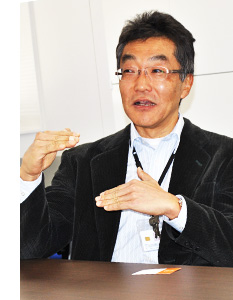 Yamamura: Rather than a question of benefits, I think the issue is the necessity of studying other fields. If you only study one subject area and live in one world, you will eventually become unable to see the world outside it. And that stops you from being able to act as a leader, I think.
Yamamura: Rather than a question of benefits, I think the issue is the necessity of studying other fields. If you only study one subject area and live in one world, you will eventually become unable to see the world outside it. And that stops you from being able to act as a leader, I think.
The time I felt this most strongly was during the Tohoku Earthquake. The people that were being called “experts” on television seemed to me to be saying some completely strange things. In the future, I think that someone who wants to be a leader will need to know about other fields.
One particular strand of ideals found in university education is to be a “T-shaped individual”. This is a person who possesses a deep specialist knowledge (the vertical stroke) and a rich education (the horizontal stroke). That is definitely something that is true. However, when you think about applying your skills to the world outside the university, you begin to feel that this alone might not be enough. As specialist fields become ever narrower, just possessing a single specialty might not be enough, so studying and knowing other fields is important.
In addition to the specialist field that you have studied deeply, you should have a good quality “bud” that you have cultivated by studying other fields (a serif on the end of the horizontal stroke) at the same time. I think that becoming this kind of “Γ-shaped” individual, and creating an education system that produces such individuals, is important for cultivating the science and technology leaders of the future.

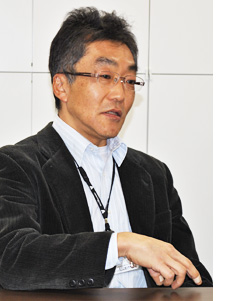 Yamamura: Thinking about my own case, studying computer science and life science at the same time was extremely difficult. You could say that the way of thinking in each subject is completely opposite from the other. For example, let's take a look at the way textbooks are written. Computer science textbooks always start with a definition, like “What is an integer?” or “What is an operation?” By contrast, life science textbooks never start by asking “What is life?” I suppose that is because the idea is that understanding this is not the start point, but the goal...
Yamamura: Thinking about my own case, studying computer science and life science at the same time was extremely difficult. You could say that the way of thinking in each subject is completely opposite from the other. For example, let's take a look at the way textbooks are written. Computer science textbooks always start with a definition, like “What is an integer?” or “What is an operation?” By contrast, life science textbooks never start by asking “What is life?” I suppose that is because the idea is that understanding this is not the start point, but the goal...
In addition, the way of thinking about and the approach to handling things like laboratories, academic conferences and theses is different. To sum it up, you could say that in each area both the form ideas take and the way they are practically expressed are completely opposite to the other.
Because the ways of thinking are opposed, if you try to study both at the same time, you are going to get confused. You end up not knowing anymore which approach you are supposed to apply to which particular phenomenon.
In order to prevent getting confused, you are better off studying one field thoroughly first, and then going on to study the other. However, if you do it that way, no matter how much time you think you have, you are never going to have enough to do everything you want to do.
So I think that you can only say that it is very difficult to find the correct balance between studying your specialist field and studying other fields.

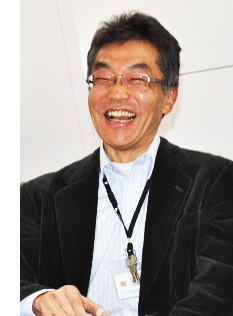 Yamamura: From my own past experience, the experience of having run various different programs as an academic, I have many tricks up my sleeve.
Yamamura: From my own past experience, the experience of having run various different programs as an academic, I have many tricks up my sleeve.
Educational curricula tend to have two aspects to them. The first could be called “reinforcing the fundamentals”, and the other could be called “practical implementation”. This is the same in any kind of study. We have made sure that the educational programs at ACLS properly incorporate both.
In regard to the component that you would call reinforcing the fundamentals, this is realized through lecture style classes. In addition to research in their specialist field, students take lectures in one additional field. We have prepared a carefully chosen menu of subjects, including subjects from undergraduate courses, so that students can study both fields without excessive difficulty.
In terms of the practical study, we have adopted the method of using group exercises. One group is composed of at most 4 members, and students from the same field can't be in the same group. By bringing students from different fields together in the same group to confront a single problem, they can learn various ideas and approaches. By solving problems seriously as a group, they gain valuable practical experience.
In both fundamentals and practical application, each of these courses was created based on the experience of specialist subjects studied at graduate school. We work by expanding on things that have actually been employed in practice and that actually worked. A lot of labor went into getting these things into the final shape they are in now. I think it's a program that we can be proud of.

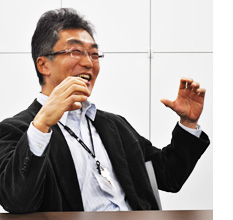 Yamamura: The programs that are currently in place are not perfect by any means. I think that overall, they are working well, but there are still some points that need to be improved. I think it's those points where I would like to see changes made.
Yamamura: The programs that are currently in place are not perfect by any means. I think that overall, they are working well, but there are still some points that need to be improved. I think it's those points where I would like to see changes made.
In the ACLS program, there are many experiences that you would not get if you were just only studying you own specialist subject. For example, group exercises (where people from different fields, including the humanities, are brought together to solve problems) are an indispensable preparation for working life. At ACLS you are able to do these kinds of preparatory simulations. Forming groups, taking on the role of leader of a group, then having to actually provide leadership. You can get as much of this important experience as you want. I hope we can continue to provide and further develop these kinds of strong points of the program.
(Note) The contents of this article are accurate as of the time the interview was conducted in February 2013.






